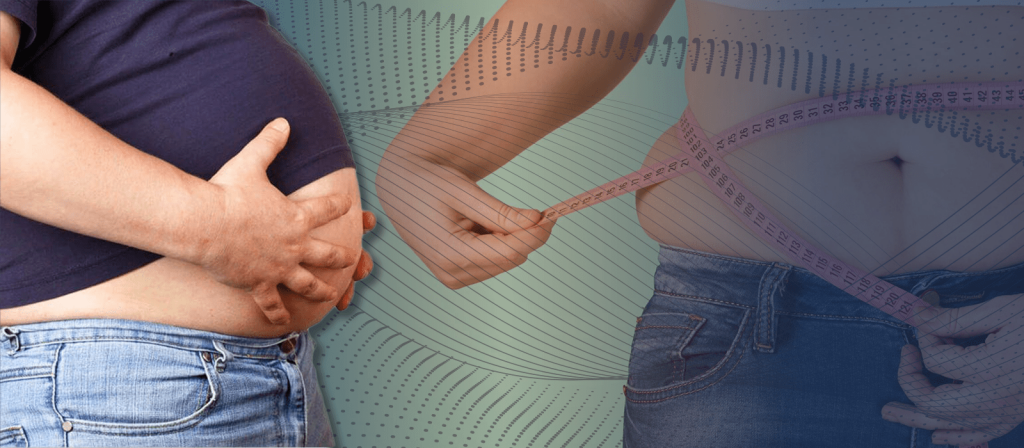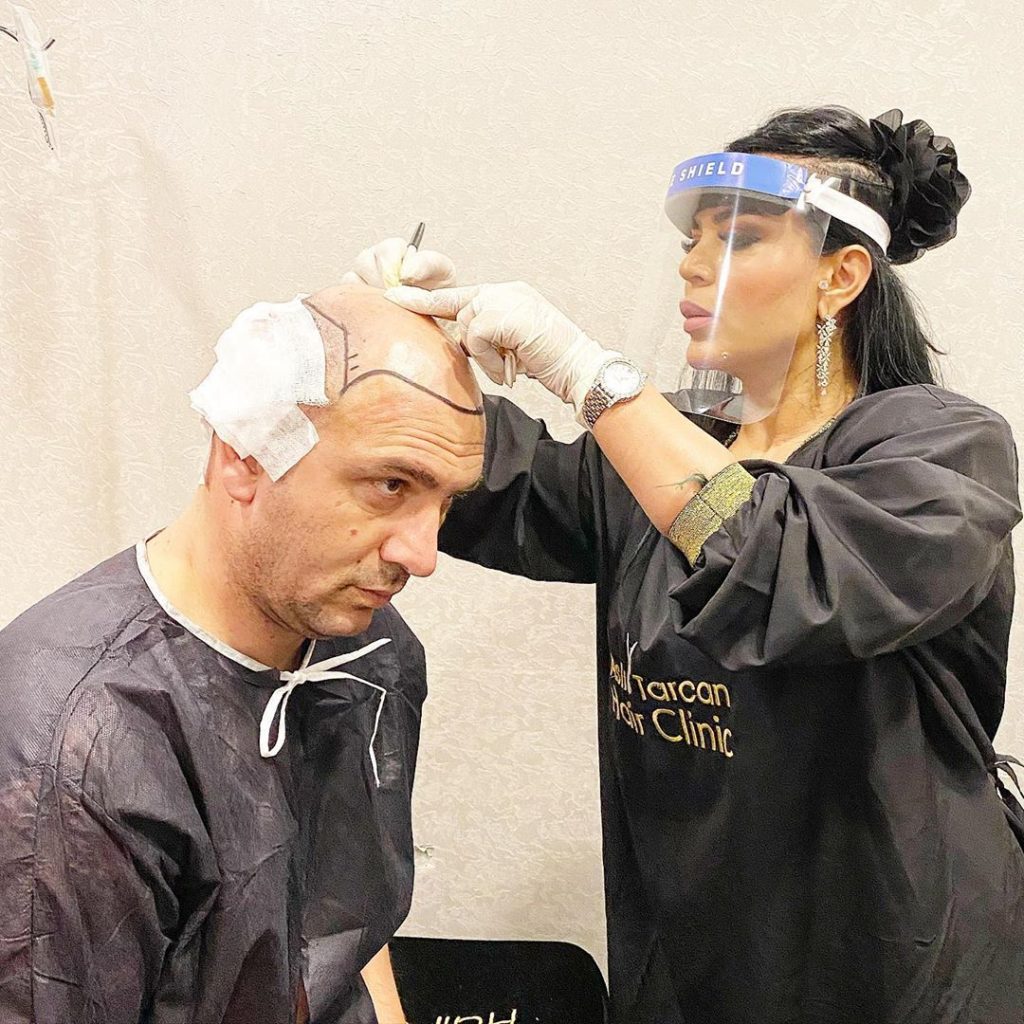
Sleeve Gastrectomy Weight loss surgeries, also known as bariatric surgeries, are very common among patients who suffer from obesity, and sleeve gastrectomy is one of the popular methods among these surgeries. During sleeve gastrectomy, the surgeon removes a part of the stomach and joins the remaining part together, creating a banana-sized stomach. This small sack which is about 1/10th the size of the original stomach will cause the patient to feel full more quickly and with less food than before. After sleeve gastrectomy surgery, you will not be able to eat as much as you did before the operation.
Sleeve gastrectomy significantly reduces the size of the stomach and limits the amount of food that can be consumed. It does not involve bypassing the intestines or reducing the absorption of nutrients. It only involves a feeling of fullness very quickly that will last for several hours. It also reduces the levels of a hormone called ghrelin, which is the hormone that lets your brain know when you are hungry and this leads to a decreased appetite for a longer time.
Prior to gastric sleeve surgery you will be asked to follow a two week pre-op diet. This diet will start two weeks before the surgery date and will help you reduce the size of your liver before the gastric sleeve surgery. This will make your surgery go smoothly and make it easier for your surgeon; it will also reduce intra-operative risks.
You will not be able to eat anything after midnight before your surgery. This is an important part, since surgeries may get cancelled because the patients eat or drink hours prior to surgery. Plus if the patient vomits during the procedure, it can cause pulmonary aspiration, which means that the contents of the stomach regurgitate and get stuck in the patient’s airways. This may be fatal or cause aspiration pneumonia.
It is likely that you will be appointed for an early morning operation, although the final decision depends on the surgeon’s schedule. The surgery is performed under general anesthesia, which means you are put to sleep and during the process you will breathe through a ventilator. Gastric sleeve surgery involves dividing your stomach to two uneven parts; about 80 percent of the outer curved part of your stomach will be removed.
The surgery will take about an hour. The surgeon will start by making a few small cuts in your abdomen and then insert a laparoscope, which is a tube with a light and a camera at the end. This camera will send images to a monitor so that the surgeon can work through the body. Then the surgeon will insert other surgical instruments through other cuts and remove ¾ of your stomach, they will reattach the rest of the stomach in order to form the sleeve. They may ask you to stay in the hospital for 2 or 3 days. This procedure is permanent.
During the laparoscopic sleeve gastrectomy, about 80 percent of the stomach is removed and after the surgery the patient will have a gastric “tube” or “sleeve”. The intestines of the patient are not removed or bypassed during the operation. Then, the edges of the 20 percent of the stomach that is left will be stapled or sutured together, creating a banana-shaped stomach, which is only 25 percent of the original size.
After the operation is complete, you will be taken to a recovery room for postoperative care. You will be resting here until the effect of the anesthesia fades away in about an hour. The small cuts in the abdomen usually heal fast after the operation due to the minimally invasive nature of the gastric sleeve surgery. Unless any complications are seen, you will be allowed to go home within 2 or 3 days.


Recovery From Gastric Sleeve Surgery
Every patient experiences pain differently and responses differently to medication. The recovery process is relatively easier for some individuals while it is painful for others. Most of the cases after procedure require a few days of stay in the hospital. Some surgeons prefer a 3 day stay while others allow patients to go home the day after the operation. Doctors will evaluate your situation and decide the time and it is highly important for patients to listen the instructions given to them.
Who Is A Candidate For Gastric Sleeve Surgery?
Gastric sleeve surgery is considered suitable for patients who have a Body Mass Index of 40 or higher and suffering from health conditions related to obesity. This means that they are 100 pounds or more over their ideal weight. Some of the patients are considered too heavy for a gastric bypass operation; hence, gastric sleeve surgery might be a good alternative. Also, the patients who are at risk for being given anesthesia or having a longer procedure due to heart or lung problems can also benefit from gastric sleeve surgery.
In order to qualify as a candidate for gastric sleeve surgery, patients must meet a certain criteria. Gastric sleeve surgery, like any other type of bariatric surgery, is only resorted to if the patient has attempted to lose weight by changing diet and exercise habits or used weight loss medications but failed.
What Are the Risks and Complications Of Gastric Sleeve Surgery?
Some risks and side effects such as bleeding, infection, injury to other organs or the need to convert to an open procedure is common among any laparoscopic procedure. You may have nausea, vomiting or constipation right after the gastric sleeve surgery. Also, there is a risk of leakage from the staple line that divides the stomach. These conditions are rarely seen and major complications occur less than 1% of the time.
Staple line leak is one of the scariest conditions that may be caused by gastric sleeve surgery. It may occur during or after the surgery. It does not pose a threat when it occurs during the surgery since it is noticed and fixed during operation. However, if it is not noticed, the patient will start feeling sick shortly after the surgery.
Staple line leaks usually occur within the first month following gastric sleeve surgery. They might be caused by eating wrong food or the tissues of the patient’s stomach that are not healing. These conditions cause staples to detach from the tissue and then lead to a leak. This staple line leak may lead to a major infection, since the patient’s stomach juices will be entering the abdomen. The symptoms of this condition include tachycardia, fever, chest pain, and pain in the abdomen. Be aware of these symptoms and go to your doctor immediately.
You will not be able to eat some certain foods after gastric bypass surgery and in order not to develop any nutrition related problems your doctor will give you vitamins and supplements. You will need to take these vitamins and supplements for life.
All in all, the risks that may be caused by laparoscopic sleeve gastrectomy are higher than the adjustable band but lower than the operative risks that may be caused by gastric bypass. Sleeve gastrectomy is a relatively safe procedure. But there are some risks and complications that can occur after any major surgery. Such as hemorrhage; which is a shock caused when a bleeding in the surgical wound or inside the body occurs. There is a condition called Deep vein thrombosis (DVT). This condition occurs when a blood clot forms in your vein, mostly in a leg vein. If the blood clot breaks off and moves to your lungs, it causes a condition called pulmonary embolism. Also, if you take shallow breaths because of the pain, it may cause a lung infection like pneumonia. Plus, there is a risk of irregular heartbeat due to surgery.
There are some complications and side effects specific to gastric sleeve surgery. These include gastric leaks, which is the leak of stomach fluids from the suture line in the stomach; stenosis which happens when the part of the gastric sleeve closes and causes an obstruction in the stomach; heartburn (GERD) caused by reshaping the stomach. Also, the part of the stomach that the surgeons remove is partly responsible for absorbing vitamins and other supplements. So you may experience deficiencies if you do not take vitamin supplements.
What Happens After the Procedure?
After the surgery you will have to make some significant lifestyle changes in order to help achieve and maintain weight loss. Your doctor will tell you the best diet for you before and after the operation. A dietitian will give you nutritional advice on how to change your diet after bariatric surgery in order to stay healthy while losing weight. You will also need to increase the amount of your physical activity.
During the first days after gastric sleeve surgery, you will only be able to have liquid foods. You will change your diet gradually to pureed and then solid food over time. Usually, patients are able to eat regular and healthy food after a month following the surgery. You will realize that the amount of food you eat is so much smaller than before and you feel full more quickly. Also, you might need to stop drinking with meals in order not to cause unneeded pressure on your stomach.
As mentioned before, it is likely that you will have some nutritional deficiencies due to the limited diet and small meals after the surgery. It is important that you take multivitamins, calcium supplements, a monthly B-12 shot, and other supplements recommended by your doctor.
During the first week after gastric sleeve surgery, you will only be able to consume clear liquids such as water, decaf tea, sugar free popsicles and broth. During the second week you will be able to have protein shakes and the third week you will be able to have soft pureed foods such as soups, scrambled eggs and cottage cheese. The fourth week you will be able to start having soft foods such as boiled chicken, fish and mashed potatoes. With week five and after you will be able to start eating small amounts of regular food.
In your new diet after the surgery, you will need to make sure that you chew well and eat slowly. You will eat 3 small meals every day. You may eat a small and nutrient amount of food as a snack if you need it. Make sure you have your protein and also vegetables and fruits. You should not drink while you eat in order to avoid overfilling your stomach, wait at least half an hour before drinking liquids after a meal. Do not drink high calorie sodas and avoid snacks. Also remember to take vitamin and mineral supplements every day. Keep in mind that you will need to change the way you eat forever, for it is essential while losing weight and keeping it that way in a healthy way after gastric sleeve surgery. It is likely that you will regain the weight you have lost if you eat too much or an unhealthy diet and neglect exercise.
What Are The Benefits Of Laparoscopic Sleeve Gastrectomy?
Even though it depends on their weight before having the surgery, patients usually lose 40 percent to 70 percent of their excess body weight within the first year following the surgery.
Most of the health problems that are related to obesity such as diabetes, hypertension, obstructive sleep apnea and abnormal cholesterol levels improve or resolve after gastric sleeve surgery. These conditions are either improved or cured in more than 75 percent of the patients who have had laparoscopic sleeve gastrectomy.
Can Gastric Sleeve Be Stretched?
There is a possibility of stretching your stomach after having gastric sleeve surgery. Insides of the stomach are lined with a tissue called rugae, which expand and contract in relation to the amount of food your stomach holds. When they expand, the stomach sends a signal that tells your brain you are full and when they contract, they push the food into the intestines to be digested. Once your stomach is empty ghrelin, a hormone that lets your brain when you are hungry, is released. So if you keep eating more than you should after the weight loss surgery. your stomach will continue to stretch and you will feel like you need more food in order to feel full. This may lead to a cycle of eating to the fullness and you may start eating more and more food in order to feel full causing your stomach to stretch; thus hindering weight loss.
In order to avoid stretching your stomach, you should not eat until you feel full. Instead, eat no more food than the predetermined size meal. Try eating small portions of nutrient dense foods. This will help you feel full longer while giving you the nutrients you need.


